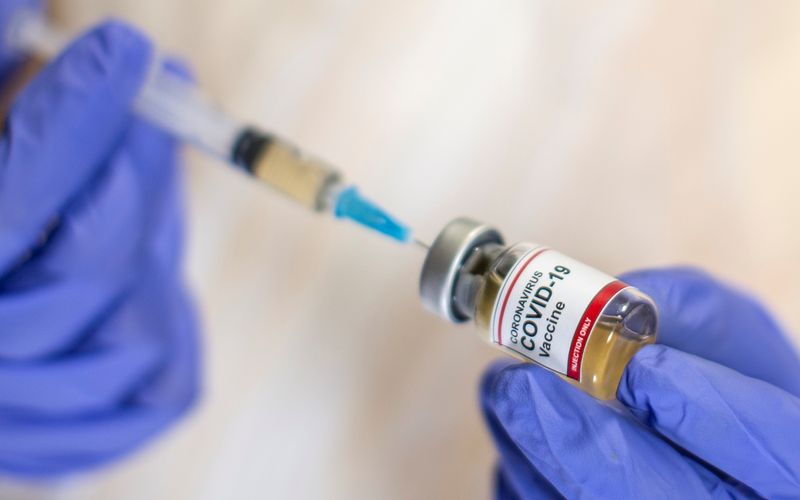By Manas Mishra
(Reuters) - Canadian drug developer Medicago said on Tuesday a combination of its experimental COVID-19 vaccine and GlaxoSmithKline (NYSE:GSK)'s vaccine booster produced virus-neutralizing antibodies in all healthy volunteers in an early-stage study.
The company, which is backed by Mitsubishi Tanabe Pharma and tobacco giant Philip Morris (NYSE:PM), said it planned to move into mid-to-late-stage trials with a lower dose version of its vaccine, along with the GSK adjuvant.
"What we're most encouraged with is that we are able to go with the lowest dose for our phase 2/3 trials," Medicago's Chief Executive Officer Bruce Clark told Reuters.
Trials from rival coronavirus vaccine developers have generally shown that lower doses produce less side effects. Medicago did not disclose full safety data, but said side effects were mainly mild to moderate.
Further trials of the vaccine would not test Dynavax (NASDAQ:DVAX) Technologies Corp's adjuvant, based on full data from an interim analysis of the 180-volunteer trial that had been submitted to the medical website medRxiv.
Medicago is Canada's most advanced domestic COVID-19 vaccine project, but lags larger, global rivals such as Pfizer (NYSE:PFE), AstraZeneca (NYSE:AZN) Plc and Johnson & Johnson which have begun late-stage trials.
Initial data from Pfizer's large-scale study on Monday showed the vaccine was more than 90% effective.
The global race for a vaccine has seen wealthier countries forge multibillion-dollar supply deals with large drugmakers such as Pfizer and AstraZeneca.
Medicago last month signed its first vaccine supply agreement - with Canada for up to 76 million doses - and Clark said the company was in talks with several other countries for potential deals.
"Even if you add the total number of doses that have been committed (by other companies), you are looking at a global population of seven billion and it will require different suppliers," said Clark.
